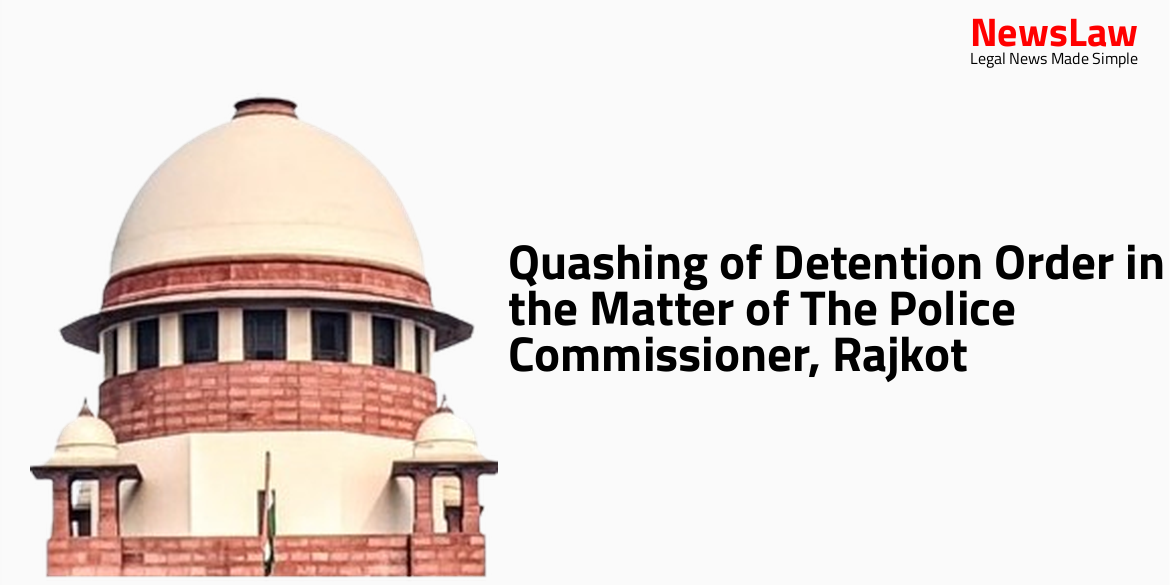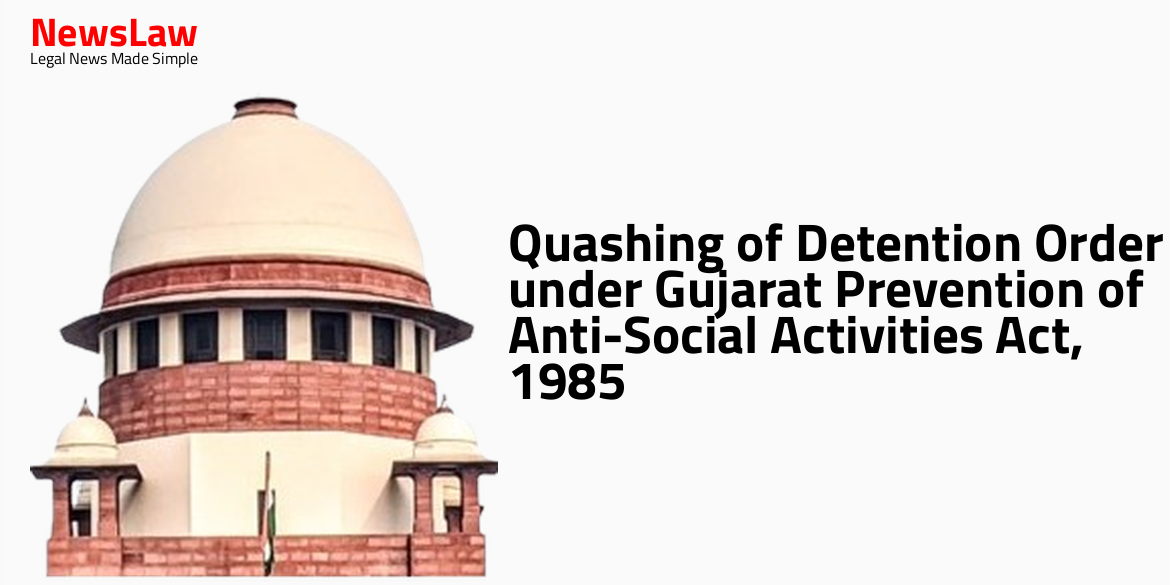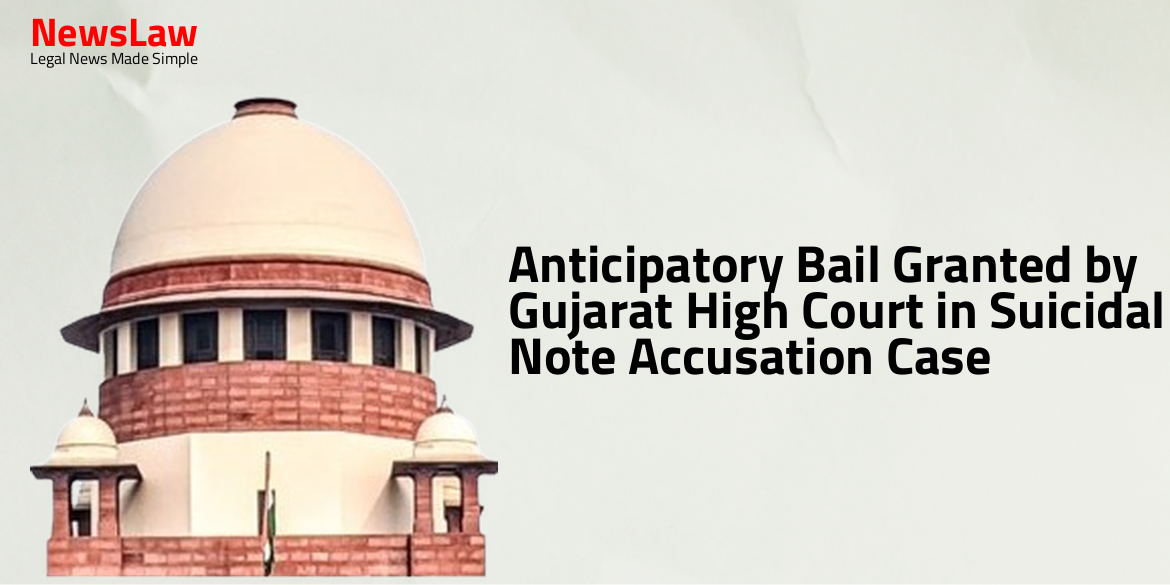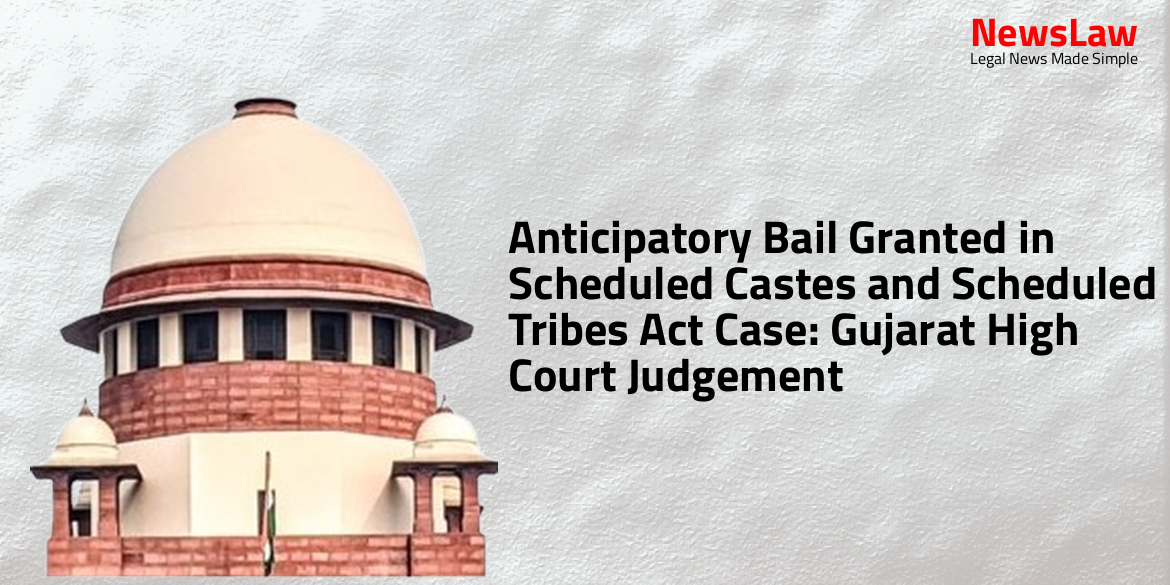In a recent judgement by the Gujarat High Court, the detention order issued by The Police Commissioner, Rajkot, has been quashed. The case involves a challenge against the detention order dated 22.11.2023, where the petitioner has been detained as a ‘dangerous person’. The advocate for the petitioner argues that the offences alleged do not qualify the detenue to be classified under section 2(c) of the Act, as they pertain to theft of private individuals’ possessions. Stay tuned to learn more about the court’s reasoning and implications of this decision.
Issue
- The issue involves a substantial question of law related to the interpretation of the Constitution of India.
- The case requires a careful analysis of the specific provisions of the Constitution or an order made thereunder.
- The interpretation of these legal provisions will have a significant impact on the outcome of the case.
Arguments
- The challenge in this case is against the detention order dated 22.11.2023 passed by the Police Commissioner, Rajkot.
- The petitioner has been detained as a ‘dangerous person’ based on four registered offences under the Indian Penal Code.
- The advocate for the petitioner argues that the offences alone do not qualify the detenue to be classified as per section 2(c) of the Act.
- The illegal activity alleged against the detenue is argued to be a breach of law and order rather than affecting public order.
- No substantial material aside from witness statements and FIRs connects the detenue’s activities to breach of public order.
- Offences are related to theft of private individuals’ possessions which may not breach public order.
- No evidence in grounds of detention to suggest petitioner’s actions disturbed public order.
- FIRs registered under Chapter 16 and 17 of IPC, indicating a dangerous person.
- Detaining authority had the alternative option to cancel petitioner’s bail.
- The detaining authority had sufficient material to order detention, including petitioner’s confession.
- The detaining authority’s order references the confession and other material as justification.
Analysis
- The detention order did not consider the option of cancelling bail as a method to curtail the activities of the petitioner.
- The petitioner had already been granted regular bail by a competent court before the detention order was issued.
- The delay of over two and a half months in passing the detention order after bail was granted raises questions of reasonableness.
- The purpose and object of preventive detention must be clear and specific, especially regarding public order disturbances.
- The detaining authority did not satisfactorily explain the need for preventive detention over using ordinary law and the possibility of bail cancellation.
- Offences alleged in the FIR/s do not impact public order as required under the Act.
- Other relevant penal laws are sufficient to address the situation.
- Allegations against the detenue are not relevant to bring them within the meaning of section 2(c) of the Act.
- Material must establish that the person poses a threat and menace to society to disturb public order.
- Without evidence of posing a threat to society, detenue cannot be classified under section 2(c) of the Act.
- Preventive detention is devised to afford protection to society.
- Unreasonable delay between the date of the order of detention & actual arrest of the detenu vitiates the detention order.
- The detaining authority and executing authorities must remain vigilant to prevent delays in passing and executing the detention order.
- Delay in passing the order of detention from the date of proposal can snap the ‘live and proximate link’ between prejudicial activities and the purpose of detention.
- Contravention of any law affects order but to affect public order, it must impact the community or the public at large.
- The petition is allowed and the detention order is quashed and set aside.
- Simplicitor registration of FIR/s does not have a nexus with the breach of maintenance of public order.
- No relevant material exists for invoking power under section 3(2) of the Act.
- The detaining authority displayed indifference and delay in passing the detention order promptly.
- The ‘live and proximate link’ between the grounds of detention and the purpose of detention was not maintained.
- The High Court did not address the issue of delay in passing the detention order.
Decision
- Direct service is permitted.
- The detenue is ordered to be set at liberty forthwith if not required in any other case.
- Rule is made absolute accordingly.
Case Title: RAYDHANBHAI AMARSHIBHAI GANESHIYA KOLI THROUGH HIS WIFE GANESHIYA MINABEN RAYDHANBHAI Vs. STATE OF GUJARAT
Case Number: R/SCA/20781/2023



